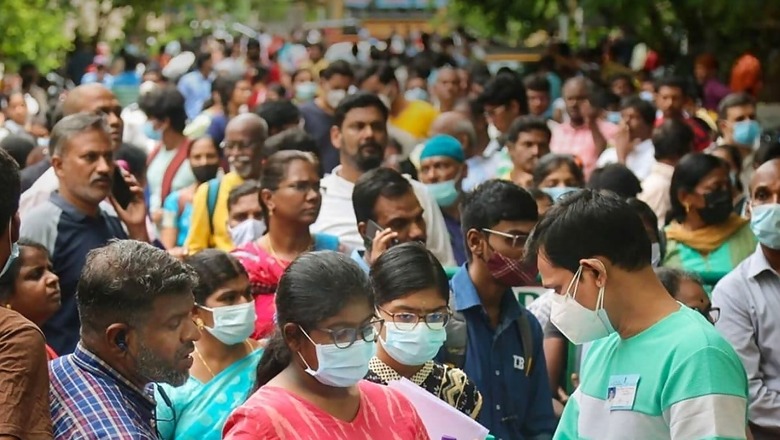
views
The Non-Collegiate Women’s Education Board (NCWEB) released the first cut-off list for B.A. and B.Com courses . Candidates can vew the cut-off list for the 2024 academic session on the official website: du.ac.in. The registration process for DU NCWEB admissions began on May 28, 2024, and the application deadline was August 17, 2024.
The Delhi University NCWEB cut-off first list has been announced, and the online admission process has commenced on, August 23 (10 am). The process will continue until tomorrow August 25 (11:59 pm).
DU NCWEB Admission 2024: Eligibility Criteria
The candidate should be female and must have secured a minimum of 40 per cent in the last examination. For the B. Com programmes, candidates must have studied and passed Mathematics, Accountancy, Economics and Business Studies/ Commerce.
DU NCWEB Admission 2024 First Cut: Steps to Check
Step 1: Visit the official website: du.ac.in
Step 2: On the homepage, click on the link DU NCWEB first cut-off list 2024.
Step 3: Select the subjects you want to see the cut-off list for
Step 4: Download the list or take a screenshot of it for further reference
The highest cut-off for General category candidates in the B.Com programmes is 88 per cent at Miranda House and 87 per cent at Hansraj College. The lowest cut-off is 60 per cent at Aditi Mahavidyalaya and Bhagini Nivedita College. For B.A. programmes, the cut-off for History and Political Science is 88 per cent at Miranda House, and 85 per cent for Economics and Political Science, with Hansraj College having a cut-off of 87 per cent for History and Political Science.
The Delhi University Non-Collegiate Women’s Education Board (DU NCWEB) is a distinctive programme, tailored for women who are unable to attend regular college due to work or personal commitments. It offers a chance for women to pursue undergraduate and postgraduate degrees without the need to attend daily classes.
As per the official information on the NCWEB website, a major advantage of the non-collegiate programme is that it is quite affordable compared to regular college courses, making higher education more accessible to women from various socio-economic backgrounds. Moreover, students are only required to attend classes on Saturdays and Sundays, which are held in designated DU colleges.




















Comments
0 comment